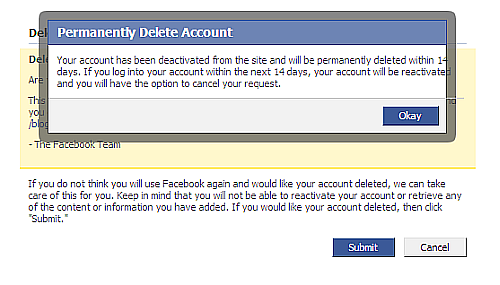Facebook Makes It Personal

The latest chapter in the ongoing Facebook saga, involves an apology from the social network in the form of a full-page ad in major British and American newspapers.
In his mea culpa, Mark Zuckerberg states that the company has taken important steps towards the protection of user privacy, by putting an end to third-party apps getting so much of our data and limiting the information that is shared when we sign up.
This comes in the wake of virulent criticism in the past week over the company’s data sharing policies. Over the years these policies have earned billions in advertising revenue for the digital giant and enabled a situation where Cambridge Analytica could access data on 50 million Facebook profiles.
Zuckerberg acknowledges the breach of trust and promises to do better, though a week into the scandal, this may just be too little too late. The fallout has been painful for the company, with calls for senate inquiries, lawsuits, a plummeting share price value and of course, #DeleteFacebook.
Even though Facebook has changed its 3rd party app developer access since 2014, the problem remains that if the information is available to one company working with Facebook, it can be be shared with others. Your data is still vulnerable to being sold to parties with whom you have no agreement, or to being hacked. Facebook holds data that is specific to you and by which you can be personally identified, so the only sure-fire way to protect your data is by storing it without the identifying parameters.
Liberdy is a new startup, which allows its users to receive payment for the use advertisers make of their data. It leverages the power of blockchain technology in combination with new EU regulation, the GDPR bill, to create a permission-based, fairer and more democratic online advertising ecosystem.
According to the GDPR, the user is the rightful owner of their data, and all the companies collating user information, must make an electronic copy available at no charge. Liberdy extracts this data, which is already being shared with Facebook and other digital companies to its decentralized Data Management Platform (DMP), where the user can then manage it via an app, which verifies, uploads and time-stamps the information. During the onboarding process, the user selects the sources from which they wish to share data, and choose exactly which data they wish to make available to advertisers.
For every client that downloads the app and register to our service, Liberdy opens a dedicated storage solution to host his or her data. All identifying elements are being erased from a copy of the file and only then the data is being shared with Liberdy.
Aggregated data is sold to advertisers and the user profits each time it is purchased and used to target their demographic. The advertiser will be provided with anonymous, behavioral data, which cannot be traced back to a specific individual. They will not be provided with information about John Black, age 40 from Sydney Australia, but instead, will receive non-identifying data. Liberdy will share that an English-speaking male, aged 35–45, is currently accessing a specific site and can be targeted with an ad geared to speak to this market segment.
A major concern driving the backlash against Facebook has been the sheer power over our personal information, including our preferences, and digital behavioral patterns, in the hands of a single corporation. Facebook, which owns Instagram and Whatsapp, is part of a powerful oligopoly, along with Google that is responsible for over 75% of digital ad spend, in a market that is projected to reach a turnover of 266 billion USD in 2018. The collection and sale of our personal data and the subsequent lack of anonymity that this entails is at the very heart of the company’s revenue model. Moreover, the user has to remain sharp when using Facebook and therefore consenting to the company’s privacy policy, as the social network site has the power to change their policies at any time, to further benefit from the marketing of the accumulated data that comprises our online identity. To protect our privacy, the aggregate data would need to be decentralized meaning that it would not be controlled by any single entity.
![0_GNHg7do9HuFtTh2y_.jpg]
As a blockchain powered initiative, Liberdy offers transparency and security on an autonomous, decentralized network that cannot be controlled by any one party, however powerful. All the data that Liberdy users share is recorded on the blockchain so each time the advertiser buys a user’s data, their account balance is updated by means of a smart contract. This means the user knows exactly who has bought their data and what they were targeting.
By sharing the personal information gathered by social networks, search engines and online retailers, you are assisting advertisers in providing you with more relevant, personalized content that is consequently of greater interest to you. However, the essential difference between Facebook utilizing your information, and you sharing your data on the Liberdy platform is that with Liberdy you retain complete control over who uses your data and how. For Liberdy users this also means that you are benefiting financially and profiting from every time your data is used.
Facebook could be in a fight for its very survival because now it’s personal and users are sitting up and taking notice. This could signal the end of “business as usual” for those companies that have relied on revenue streams that compromise our privacy. Thanks to Liberdy, a new model exists and how we move forward, with regard to management of our data, is up to us.
If you’re interested in learning more about advantages the Liberdy platform offers simply email us at [email protected] or join our Telegram: https://t.me/liberdy
you have completed a good task, good post, please follow @steemizizen.👍✌
One really has to go through a a tedious process to delete a facebook profile